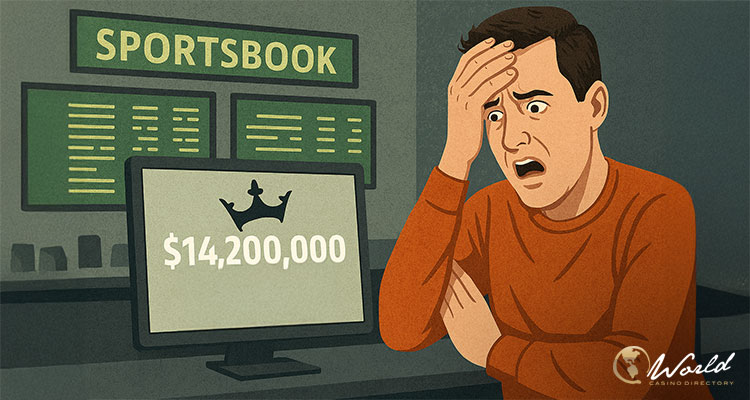DraftKings, the online sportsbook that denied an Iowa man $14.2 million in golf tournament winnings, says it acted appropriately when it voided his wagers. DraftKings Inc. and its Iowa-licensed subsidiary, Crown IA Gaming, contend that their rules allow the cancellation of bets in cases of error.
The dispute stems from a lawsuit filed by Dallas County resident Nicholas Bavas, who argues that DraftKings wrongfully voided his bets during the weather-shortened 2024 AT&T Pebble Beach Pro-Am. Bavas claims the company changed how it applied its rules after realizing his parlay wagers had hit for a massive payout.
DraftKings, however, denies any wrongdoing. In recent court filings cited by Iowa Capital Dispatch, the company listed 19 separate defenses, including an argument that Bavas “knowingly accepted the risk that circumstances may arise related to the odds associated with any wager.” The sportsbook points to its house rules, which warn that mistakes may occur and that DraftKings can void wagers if errors are identified.
How the Bets Unfolded
According to the lawsuit, Bavas placed five separate bets late on Feb. 3, 2024, just as historic rain and high winds threatened to derail the tournament.
At 10:00 p.m., he wagered $100 on a “20 Picks” parlay that included Wyndham Clark to win. DraftKings listed a potential payout of more than $4.6 million.
At 10:18 p.m., he bet $25 on a top-20 parlay in no specific order, worth $250,068.
At 11:22 p.m., he added a $50 version of his first parlay, with a $2.3 million payout.
At 11:59 p.m., he repeated the $100 parlay, again worth $4.6 million.
Finally, just after midnight, he placed another $50 parlay identical to the third, also valued at $2.3 million.
The following day, play was repeatedly delayed. By the evening of Feb. 4, PGA Tour officials announced that the tournament would conclude after 54 holes, finalizing the leaderboard as it stood. That decision left Bavas’ selections correct, which he claims entitled him to collect $14.2 million.
Instead, DraftKings refunded only his stakes, citing a rule that “futures bets” placed after the last shot of the final round are void.
Conflicting Interpretations
Bavas argues the cited rule does not cover multi-player parlays like the ones he placed. His legal team describes DraftKings’ policies as a “dizzying array of interlocking sets of rules” that the company selectively applies when large sums are on the line.
“Had Bavas wanted to place a bet on only the single individual ‘player’ who would ‘win the trophy’ and become the ‘tournament winner,’ he would have done so,” the lawsuit states. Even if DraftKings could nullify his Clark pick, Bavas contends, the other legs of his parlays should have been recalculated and honored.
Attorney Ben Lynch underscored the double standard: “If he had lost the bet and said, ‘I want my money back because I didn’t think the weather was going to cancel things,’ DraftKings would have kept his money. The rules that DraftKings had in place at the time of the tournament did not allow them to void the bets. They changed the rules after this tournament.”
A Landmark Dispute
Legal experts note the case could be among the largest unresolved sports-betting disputes in U.S. history. Lynch has described it as “the largest dollar amount for an unpaid bet against a sportsbook in U.S. history.”
The lawsuit, initially filed in Iowa state court, was later moved to U.S. District Court for the Southern District of Iowa. A trial is scheduled for September 28, 2026.
Sports betting has expanded rapidly across the country since 2018, but lawsuits of this scale remain rare. Iowa alone saw $2.7 billion wagered in 2024, with DraftKings handling nearly $900 million. Regulators with the Iowa Racing and Gaming Commission have so far declined to intervene, telling Bavas there was “not much of an investigation.”
Lynch compared the case to “David versus Goliath,” noting that while DraftKings refunded the wagers, his client wants the bets honored. “At the time that he placed it, it was a binding contract between Nick Bavas and DraftKings, and they need to honor it. It’s as simple as that,” he said.
For now, the multimillion-dollar question remains unsettled, with both sides bracing for a lengthy court battle.



